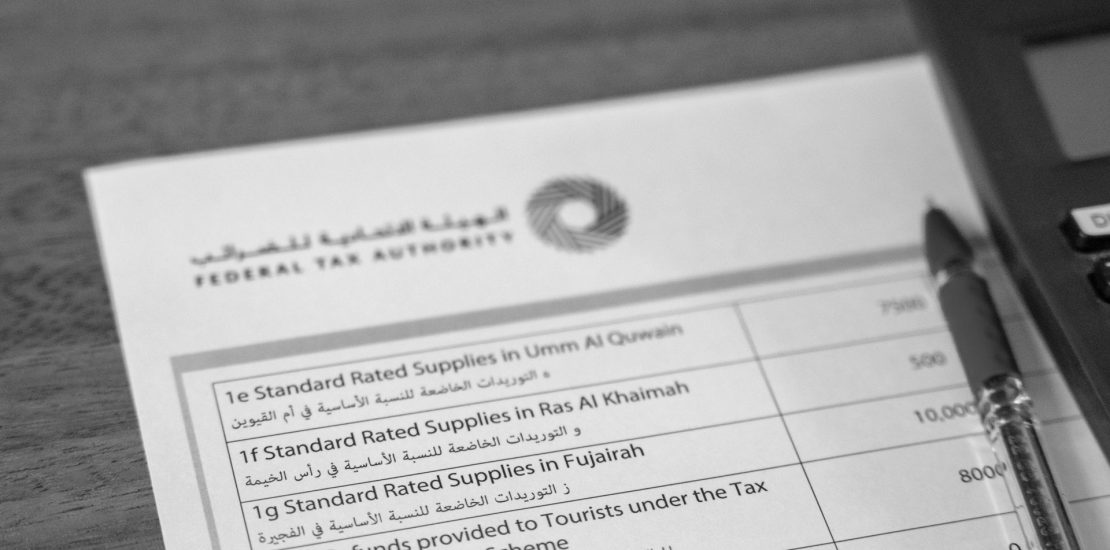UAE Commits to Common Reporting Standard 2.0
- 21.11.2025
- Posted by: Uwe Hohmann
- Categories: Tax, Dubai

The UAE MoF (Ministry of Finance) has announced the country will implement the updated CRS (Common Reporting Standard) 2.0 from 01.01.2027.
The first automatic exchange of financial information under this updated framework will begin in 2028.
What Is CRS 2.0?
The Common Reporting Standard is an international framework developed by the OECD (Organisation for Economic Co-operation and Development).
It governs the automatic exchange of financial account information between tax authorities worldwide.
The original CRS went live in the UAE on 01.01.2017, established under Federal Decree No. 48 of 2018 and Cabinet Resolution No. 93 of 2021. CRS 2.0 is an updated version that addresses gaps in the original framework, specifically around digital finance.
The key expansion under CRS 2.0 includes electronic money products, CBDCs (Central Bank Digital Currencies), and certain crypto-related activities. Financial institutions will face additional due diligence and reporting requirements to ensure that growth in digital assets does not create new avenues for tax non-compliance.
The Crypto Asset Reporting Framework (CARF)
Alongside CRS 2.0, the UAE has committed to implementing the CARF (Crypto Asset Reporting Framework). The Ministry of Finance has aligned both frameworks to take effect simultaneously, with data collection starting in 2027 and the first exchanges occurring in 2028.
CARF specifically targets RCASPs (Reporting Crypto-Asset Service Providers).
This category includes crypto exchanges, custodians, broker-dealers, and wallet platforms that facilitate transactions on behalf of clients. Both UAE-based operators and foreign firms with a registered presence or significant activity in the country will fall within scope.
Where CRS 2.0 expands the reporting of holdings in e-money and CBDCs, CARF focuses on tracking crypto transactions. The two frameworks work together to create a comprehensive reporting structure for digital finance.
Timeline and Key Dates
The implementation follows this schedule:
2025-2026: Preparation period. The Ministry of Finance is expected to publish secondary rules and local technical requirements in 2026. Businesses should use this window to review systems, update policies, and prepare data collection processes.
2027: CRS 2.0 and CARF take effect. Reporting institutions must begin collecting the required information for the 2027 calendar year.
2028: First automatic exchange of information under the new frameworks. Data from the 2027 reporting period will be shared with tax authorities in other participating jurisdictions.
The UAE joins over 70 jurisdictions that have committed to implementing CARF. Many EU states, along with the UK, will begin exchanges in 2027.
The UAE follows closely, aligning itself with the global push toward financial transparency in digital assets.
Why This Matters for UAE Businesses
For years, one of the UAE’s attractions for international business has been its approach to taxation and privacy.
This update does not change the UAE’s tax-friendly status, but it does mean that financial information will flow more freely between the UAE and other countries.
Businesses and individuals cannot assume that assets held in the UAE will remain invisible to tax authorities elsewhere. The automatic exchange mechanism means that account holder data, including names, addresses, tax identification numbers, and account balances, will be shared with the relevant foreign tax authorities.
This creates both compliance obligations and practical considerations for structuring.
Anyone with cross-border financial interests should review their arrangements now, not in 2027.
TME Services - Your Complete Business Partner
Our comprehensive services are designed to support you every step of your business journey:
- Company Formation: We guide you through all aspects of setting up your company, whether in a free zone or on the mainland, ensuring you choose the best option for your business.
- Visa and Emirates ID Services: We streamline the process of securing visas and Emirates IDs for you and your employees, allowing you to focus on your business operations.
- Accounting: Our team ensures your business stays compliant with local financial regulations, which is crucial for maintaining good standing in Dubai’s business community.
- Tax: We help manage Dubai’s tax environment, ensuring your business remains compliant while optimizing your tax position.
- Compliance and AML : We help ensure your business remains compliant with UAE laws and regulatory requirements while assisting in the implementation, maintenance, and training of AML (Anti-Money Laundering) procedures in line with national and international standards.
- Business Consulting: Leveraging our deep understanding of Dubai’s market, we provide valuable insights and help you develop effective strategies to succeed.
Visit our services page to learn more about everything we do.
-
13 Feb 2026 TaxUAE Ministry of Finance Designates VARA as Competent Authority Under CIT Framework
-
13 Feb 2026 TaxUAE Cabinet Decision Exempts Certain Sports Entities from Corporate Income Tax
-
13 Feb 2026 TaxUAE Issues Cabinet Decision on Exchange of Tax Information
-
06 Feb 2026 DubaiUAE Non-Oil Trade Crosses AED 3.8 Trillion
-
06 Feb 2026 DubaiUAE and Austria Strengthen Trade Ties